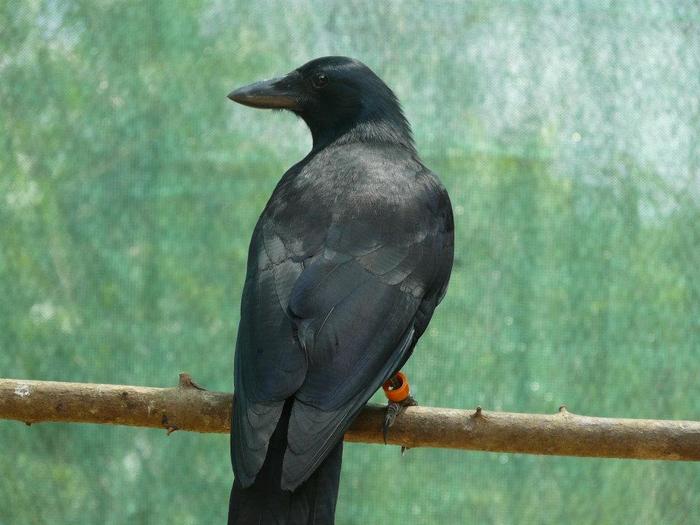While Eurasian jays and New Caledonian crows can practice delayed gratification by waiting for access to higher-quality food, jays adjust this self-control behavior depending on the social context. The study by Dr. Rachael Miller at Anglia Ruskin University, UK, James Davies at the University of Cambridge, UK, and colleagues is publishing December 6 in the open-access journal PLOS ONE.

Credit: Rachael Miller, CC-BY 4.0 (https://creativecommons.org/licenses/by/4.0/)
While Eurasian jays and New Caledonian crows can practice delayed gratification by waiting for access to higher-quality food, jays adjust this self-control behavior depending on the social context. The study by Dr. Rachael Miller at Anglia Ruskin University, UK, James Davies at the University of Cambridge, UK, and colleagues is publishing December 6 in the open-access journal PLOS ONE.
Self-control helps animals to plan and achieve long-term goals. For example, the ability to resist a small, immediate reward and wait for a better one is known as delayed gratification. However, in social groups, delayed gratification can be risky, because another individual might steal the reward. Researchers investigated whether corvids apply this self-control flexibly in different social contexts. They presented six temporarily captive New Caledonian crows (Corvus moneduloides) in New Caledonia, a French territory in the South Pacific, and five hand-reared Eurasian jays (Garrulus glandarius) in the UK with a choice between an immediate, low-quality reward and a 15-second wait for a high-quality reward. The birds were tested alone and in the presence of another bird that was either dominant (i.e. a competitor) or subordinate (i.e. a non-competitor). The crows tended to wait for the high-quality reward, regardless of the social context. In contrast, jays selected the delayed, high-quality reward when they were alone, but tended to choose the quick, low-quality reward when another bird was present, especially if that bird was dominant.
The results suggest that Eurasian jays use self-control flexibly depending on the presence and identity of other birds, while New Caledonian Crows behave more consistently across social contexts. These differences may reflect the two species’ social lives and feeding strategies, the authors say. Eurasian jays are more territorial and less social than New Caledonian crows, and while both species cache food (i.e. hide it for later use), jays are more dependent on this tactic for survival. These traits might explain why jays were less tolerant of competitors and more likely to take a low-quality reward, rather than risk missing out.
Dr. Rachael Miller adds: “The corvid family of birds are capable of self-control, specifically, choosing to wait for a better reward. We found that Eurasian jays, though not New Caledonian crows, will flexibly adapt their self-control behavior, and will settle for taking a lesser, immediately available reward when competitor birds are present.”
#####
In your coverage please use this URL to provide access to the freely available article in PLOS ONE: https://journals.plos.org/plosone/article?id=10.1371/journal.pone.0289197
Citation: Miller R, Davies JR, Schiestl M, Garcia-Pelegrin E, Gray RD, Taylor AH, et al. (2023) Social influences on delayed gratification in New Caledonian crows and Eurasian jays. PLoS ONE 18(12): e0289197. https://doi.org/10.1371/journal.pone.0289197
Author Countries: UK, Czech Republic, Singapore, Germany, New Zealand
Funding: The study was funded by a Research Support Development Grant and Biology QR funds (Anglia Ruskin University) awarded to R.M, a Royal Society of New Zealand Rutherford Discovery Fellowship and a Prime Minister’s McDiarmid Emerging Scientist Prize to A.H.T., and by the European Research Council under the European Union’s Seventh Framework Programme (FP7/2007-2013)/ERC Grant Agreement No. 3399933, awarded to N.S.C. The funders had no role in study design, data collection and analysis, decision to publish, or preparation of the manuscript.
Journal
PLoS ONE
DOI
10.1371/journal.pone.0289197
Method of Research
Experimental study
Subject of Research
Animals
Article Title
Social influences on delayed gratification in New Caledonian crows and Eurasian jays
Article Publication Date
6-Dec-2023
COI Statement
The authors have declared that no competing interests exist.




